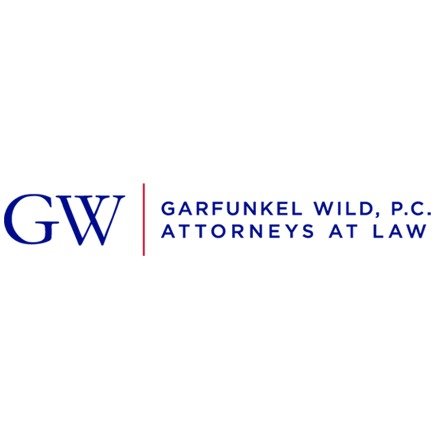Best Tax Increment Financing Lawyers in New York
Share your needs with us, get contacted by law firms.
Free. Takes 2 min.
Or refine your search by selecting a city:
List of the best lawyers in New York, United States
About Tax Increment Financing Law in New York, United States
Tax Increment Financing, commonly known as TIF, is an economic development tool used by local governments to promote redevelopment, infrastructure improvements, or economic growth in specific areas. In New York State, TIF enables a municipality to capture the future tax benefits generated by increased property values in a designated district. These captured funds can then be used to finance eligible public projects like transportation, utilities, or affordable housing. While TIF has been a common practice in many states, New York has specific statutory requirements and guidelines for the use of TIF by its municipalities, making it essential to understand the unique landscape of TIF law within the state.
Why You May Need a Lawyer
Navigating Tax Increment Financing in New York involves complex procedures and regulations. Legal assistance is often necessary in the following situations:
- Assistance with preparing, proposing, or reviewing TIF district plans and project proposals.
- Guidance through the extensive public hearing and approval processes required by New York law.
- Negotiating project terms between municipalities, developers, and other stakeholders.
- Understanding property tax implications and the impacts on local taxing jurisdictions.
- Resolving disputes regarding property values, allocation of funds, or eligible uses of TIF revenues.
- Ensuring compliance with environmental regulations and land use laws.
- Providing representation in the event of legal challenges or lawsuits against the TIF initiative.
Local Laws Overview
In New York, TIF is governed by a combination of state statutes and local ordinances. The primary legal framework comes from the New York State Local Finance Law, particularly Article 10-C. This law outlines the procedures for establishing a TIF district, including requirements for public hearings, district designation, financial planning, and reporting.
Key aspects include:
- Municipalities may designate TIF districts subject to approval by the local legislative body.
- All TIF proposals must feature a detailed redevelopment plan, including projected costs and expected benefits.
- TIF districts must demonstrate that projects would not occur "but for" the use of TIF financing.
- The process demands community input, with mandatory public notice and hearings before implementation.
- Use of TIF funds is restricted to specific qualified public improvements as outlined in state law.
- Detailed reporting and audit obligations help ensure transparency and accountability.
Some cities and counties may have their own TIF-related ordinances, which are layered on top of state requirements. Thus, understanding both state and local laws is critical.
Frequently Asked Questions
What is Tax Increment Financing?
Tax Increment Financing is a method used by municipalities to fund redevelopment and public infrastructure projects by capturing the future increases in property tax revenue resulting from those improvements.
How does TIF work in New York?
In New York, a municipality designates a TIF district, estimates the projected increase in property values, and uses the additional tax revenue generated within that district to repay bonds or fund public improvements.
What kinds of projects can be funded with TIF in New York?
Eligible projects include public infrastructure such as roads, utilities, parks, and environmental remediation. Some affordable housing, economic development, and historic preservation projects may also qualify.
Who is responsible for approving a TIF district?
The local legislative body, such as a city council or town board, must approve the creation of a TIF district after public hearings and review.
Does TIF increase taxes for residents?
TIF does not directly increase taxes. It reallocates the growth in future property tax revenues from the TIF district to pay for improvements, rather than those funds going to other taxing entities.
Can TIF impact funding for schools and public services?
Yes. Since TIF diverts some future tax revenue, it can temporarily limit the growth of property tax funding available for schools and other public services until TIF obligations are paid.
How are property owners within a TIF district affected?
Property owners may benefit from infrastructure improvements that could enhance property values. However, they are not subject to additional taxes strictly due to TIF designation.
What is the typical duration of a TIF district in New York?
TIF districts in New York are generally established for a period that matches the term of the bonds or notes issued, often 20 to 30 years.
How can citizens participate in the TIF process?
Citizens have the opportunity to engage during public hearings and through community comment periods that are required before TIF approval.
What happens if a TIF project fails to generate expected revenue?
If anticipated increases in property values do not occur, there may be insufficient funds to repay bonds or complete planned projects. This risk underscores the need for thorough planning and legal oversight.
Additional Resources
Individuals seeking more information about TIF in New York may find the following resources valuable:
- New York State Department of State Division of Local Government Services
- New York State Local Finance Law (Article 10-C)
- New York State Comptroller's Office
- Local city and county economic development offices
- Empire State Development
- Nonprofit organizations focused on land use and urban development
- Bar associations offering lawyer referral services in municipal finance and economic development
Next Steps
If you are considering involvement in a TIF project or are impacted by one as a property owner or local stakeholder, consider the following steps:
- Gather all relevant documents, including project proposals, notices, and communication from local authorities.
- Consult with a lawyer experienced in municipal finance or public law who understands New York’s unique TIF statutes.
- Attend public hearings or meetings related to the TIF proposal to stay informed and make your voice heard.
- Contact the appropriate municipal or county department for information regarding the specific TIF district in your area.
- Review the New York State Local Finance Law and any applicable local ordinances for additional context.
Taking these steps can help ensure your interests are protected and you are fully informed about your rights and obligations in relation to Tax Increment Financing in New York.
Lawzana helps you find the best lawyers and law firms in New York through a curated and pre-screened list of qualified legal professionals. Our platform offers rankings and detailed profiles of attorneys and law firms, allowing you to compare based on practice areas, including Tax Increment Financing, experience, and client feedback.
Each profile includes a description of the firm's areas of practice, client reviews, team members and partners, year of establishment, spoken languages, office locations, contact information, social media presence, and any published articles or resources. Most firms on our platform speak English and are experienced in both local and international legal matters.
Get a quote from top-rated law firms in New York, United States — quickly, securely, and without unnecessary hassle.
Disclaimer:
The information provided on this page is for general informational purposes only and does not constitute legal advice. While we strive to ensure the accuracy and relevance of the content, legal information may change over time, and interpretations of the law can vary. You should always consult with a qualified legal professional for advice specific to your situation.
We disclaim all liability for actions taken or not taken based on the content of this page. If you believe any information is incorrect or outdated, please contact us, and we will review and update it where appropriate.
Browse tax increment financing law firms by city in New York
Refine your search by selecting a city.














